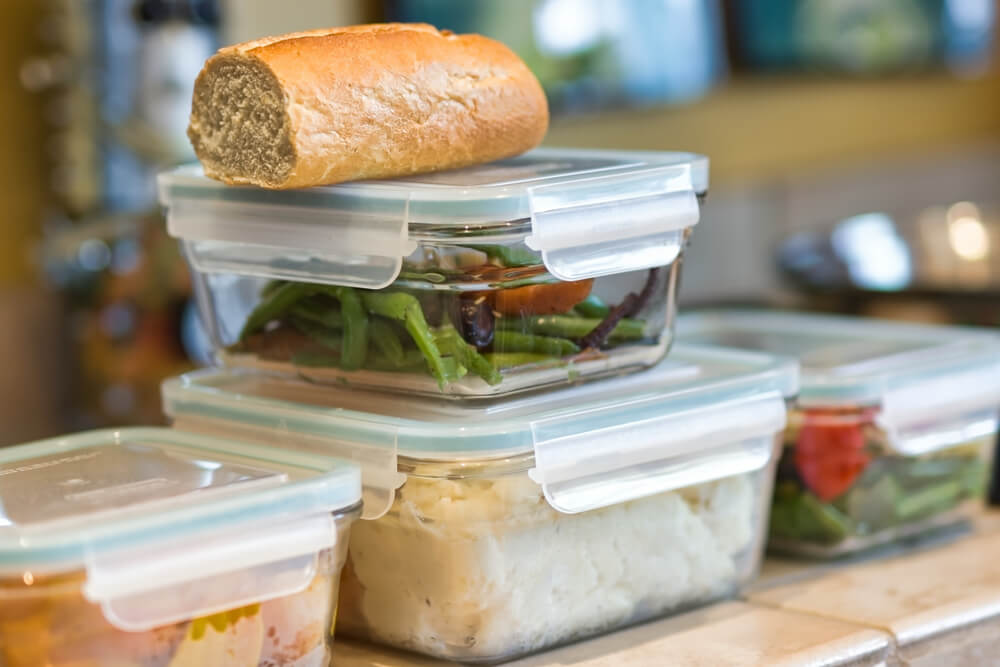Thanksgiving is behind us, but do you still have some leftovers from the Thanksgiving feast lingering in your fridge? Many consider leftovers a traditional part of the Thanksgiving celebration, and it is an opportunity to be grateful for blessings so abundant that they spill over into the week after Thanksgiving.
But many people in America don’t experience this kind of abundance. Last year, 37.2 million people lived in food-insecure households. Leftovers may wind up in the trash in your home, but they are simply not a reality for millions of families.
So what should our leftovers remind us? St. Basil the Great once said, “The bread in your cupboard belongs to the hungry; the coat unused in your closet belongs to the one who needs it; the shoes rotting in your closet belong to the one who has no shoes; the money which you hoard up belongs to the poor.”
Recently on Go Ask Your Father™, Monsignor Stuart Swetland shared about a program in Indiana that lives out the words of St. Basil, and shows what our leftovers remind us – that to whom much is given, much is required.
“What do they do with all that leftover food? My mom was a principal and that was something that people thought about all the time,” Msgr. Swetland said. “Because if you’ve ever been involved with a cafeteria of any store, there often is leftover food. And what do you do with it? Well, some people and certain places are trying to be creative and also feed those who might go hungry over the weekend.”
Msgr. Swetland played a clip of a news program that showed a new pilot program at Woodland Elementary School in Elkhart, Indiana. The program takes food that was prepared, but not served, and turns it into meals for students in need. The school sends students home with insulated backpacks filled with frozen meals to feed them through the weekend. Each prepackaged meal that is sent home has a protein, a vegetable, and a starch. Woodland Elementary was selected for the pilot program specifically because of the high number of students who qualify for free and reduced meals.
“That’s a creative way to do something Pope Francis has been encouraging us in the rich world to do, to be more cognizant of the waste of food and find creative ways not to be wasteful,” Msgr. Swetland said. “But also this is creative in the sense that it helps those in need. In this case, 20 families are helped over the weekend, when students might not be getting the kind of food they need to continue to grow in a healthy way.”
And though this is just a pilot program at one school, Msgr. Swetland shared his own experience as the president of Donnelly College, and how his school helps those students who are in danger of going hungry.
“I was just on the on the local public radio here in Kansas City, talking about how colleges have food pantries,” he explained. “I know we do here at Donnelly College. Many colleges have food pantries, because some of our college students, and sometimes their families if they’ve already started a family, might be in situations where during part of the time they’re in school there may be some food insecurity.”
“Even in a rich nation like ours, there are those who are still struggling to make ends meet, who are hungry,” Msgr. Swetland reminded listeners. “And of course, Matthew 25 makes it clear that as best we can, we should find ways of feeding those who are hungry. Because we see Christ there, and we serve Christ there.”
Do you wish you could help a family in need? Give a large gift to your local food pantry? Enter our Christmas Wish Contest and you’ll have the chance to win $500 that you can use to feed the hungry, help a neighbor in need, or whatever you wish! Enter now for your chance to win.
Listen to the full conversation below, and tune-in to Go Ask Your Father™ weekdays at 1:00 p.m. Eastern/10:00 a.m. Pacific on Relevant Radio® and the Relevant Radio App.
Podcast: Play in new window | Download
Subscribe: RSS


